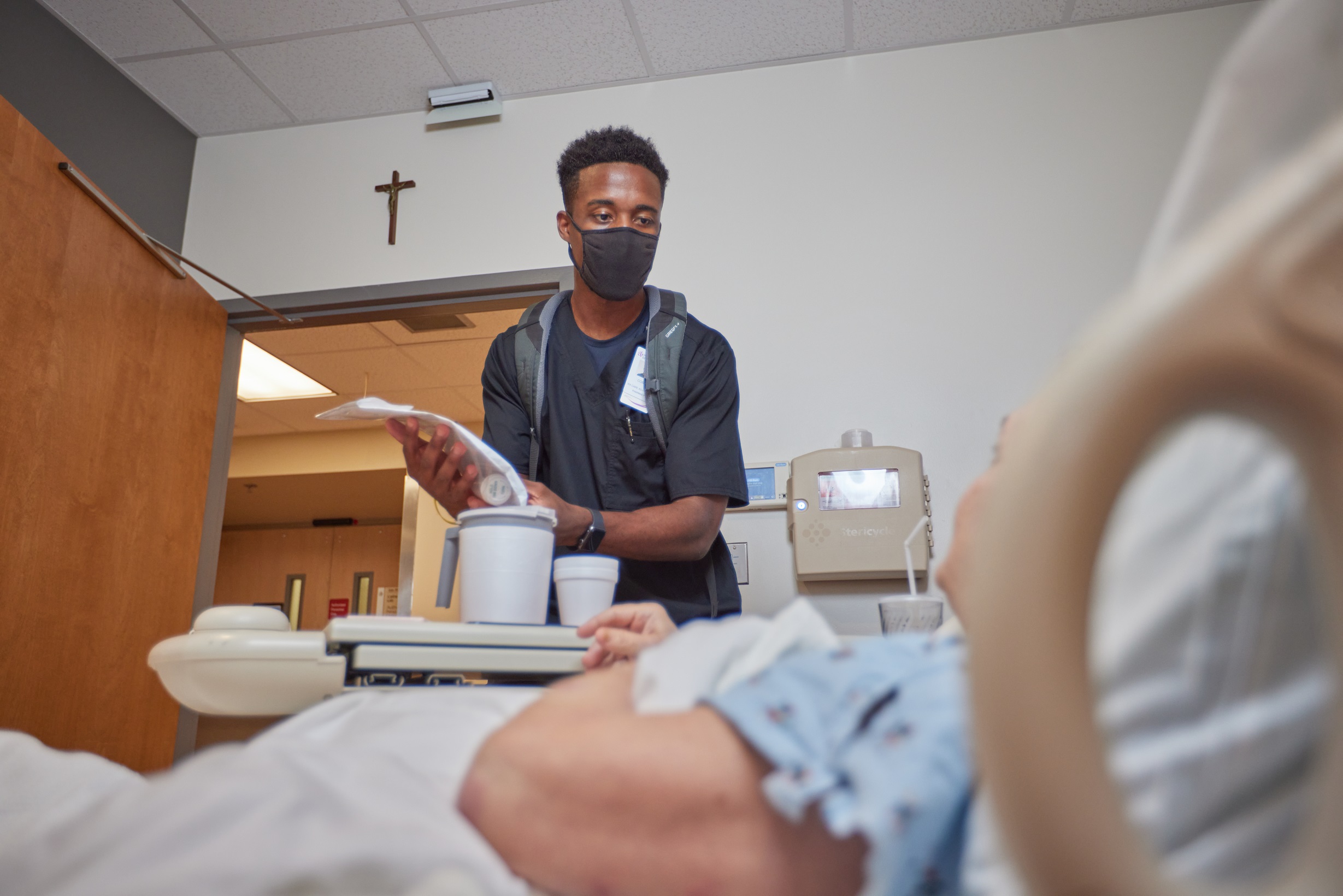As we’ve reported elsewhere in this forum, statistical evidence indicates that up to 70% of all preventable hospital readmissions are caused by patient prescription non-compliance. What’s more, analytics generated by our own proprietary software further indicate that readmissions from prescription non-compliance are, on average, more expensive than other readmissions — often much more.
Why Aren’t Outpatients Taking Their Medication?
In an article published November 06, 2017, The Journal For Nurse Practitioners noted, “Patients with increasingly complex conditions are being discharged from hospitals with increasingly complex care plans. Those plans often include a daunting array of medications, some new, some old, some with adjusted doses, and often some that interact with what the patient may already have at home… Cost is another barrier to adherence.” Finally, it noted, “Another obstacle is when a medication is not on formulary or needs prior authorization.”
How Can Meds to Beds Help Me? (Health Systems)
Bedside prescription delivery is arguably the single most effective tactic health care institutions can use to ensure that their discharge prescriptions are captured before they leave the hospital. ProxsysRx has implemented and managed successful Meds To Beds programs for dozens of health care systems over the years. The minimum reduction we’ve helped our clients achieve in hospital-wide readmissions is 20%.
At one Mississippi-based health system, ProxsysRx’s outpatient pharmacy filled over 18,000 discharge prescriptions in its first 12 months of service. During that time, the hospital’s pharmacy revenues increased 125% and its medication-related readmissions decreased 79%.
According to a 2020 study published by Frontiers In Public Health, Meds To Beds programs “have been shown to significantly reduce 30-day hospital readmissions (in one study the reduction was greater among older adult patients) (1) and emergency department visits.” The 2020 study further reported, “These programs increase the number of patients actually obtaining their discharge medications by removing common barriers related to payment and transportation, increase patient satisfaction, and reduce costs.”
How Can Meds To Beds Help Me? (Patients)
First, and most importantly, properly-managed Meds To Beds programs help patients understand their often-complicated medication protocols. Second, there’s the issue of cost. To combat this, your hospital’s outpatient pharmacy should be able work hand-in-hand with your health system to set up funding options — particularly for patients with limited financial resources. Once again, statistics indicate that the two most common causes for prescription non-compliance are Confusion and Cost.
Next, there are the benefits of sheer convenience — and comforting assurance — that Meds To Beds programs offer patients. Particularly at a highly stressful time. As noted in a 2016 study published by Pharmacy Today, “Bedside delivery means that a new mom and dad can spend valuable hours with their new addition. For the daughter or son of a heart attack patient, it means that they can have peace of mind that their parent is going home on medications that will help keep them healthy for many years to come. Bedside delivery is the missing link in the transition of care from the hospital to home.”
How Can Meds To Beds Benefit Your 340B Program?
In addition to the benefits mentioned above, patients discharged from 340B eligible entities can be placed in a 340B program “funnel” — where they’re afforded superior ongoing professional care and support, post-discharge while driving entity revenues. Hospitals with extensive contract pharmacy networks offer patients more choices in filling their prescriptions. Choices that generates positive monetary value for the health systems themselves.
Meds To Beds Workflow: How it Works
In a well-run Meds To Beds program, discharge prescriptions are delivered to patients by a pharmacist, or a highly-trained employee capable of thoroughly discussing the patients’ prescription protocols. At the same time, the delivering professionals can review patients’ existing medications (to help prevent medication conflicts or contraindications). For more tips on maintaining an effective Meds To Beds program, Click Here.
In the Meds To Beds programs we manage, ProxsysRx partners with health systems’ case management teams, nurses and physicians — with the goal of implementing cohesive medication treatment plans for patients transitioning from hospital to home. Just as importantly, our professionals perform all the work themselves, so there’s never any added burden on the hospitals we serve — or their nurses and staff.
Person-To-Person Patient Follow-Up
Once patients have been given their discharge prescriptions, your Meds To Beds program should set in motion a follow-up Readmission Risk Reduction (RRR) program. ProxsysRx assigns Care Management Associates, at its own cost, to all patients discharged with prescriptions. What that means, for the hospitals we serve, is that ProxsysRx professionals (as representatives of those health systems) make prescription discharge follow up calls to patients during their first 72 hours after discharge.
When patients aren’t maintaining prescription compliance, your health care system’s professionals should be able to work with them in determining solutions to their problems — whether it’s dosage confusion, inability to pay, lack of transportation to pharmacies, or unanticipated interactions with existing medication protocols.
Patient- and Performance-Tracking Software
Finally, an effective Readmission Risk Reduction program should keep electronic records of discharge patient and RRR program activity. ProxsysRx has developed a customized software system, which offers health systems real-time access to all relevant performance metrics for when patients leave the hospital. What’s more, we use those metrics in working to continuously improve our own performance.
How Can ProxsysRx Benefit Your Meds To Beds Program?
There are so many ways to implement effective Meds To Beds / RRR programs. For more information, contact Howard Hall. C: 214.808.2700 | howard.hall@proxsysrx.com
![]()

